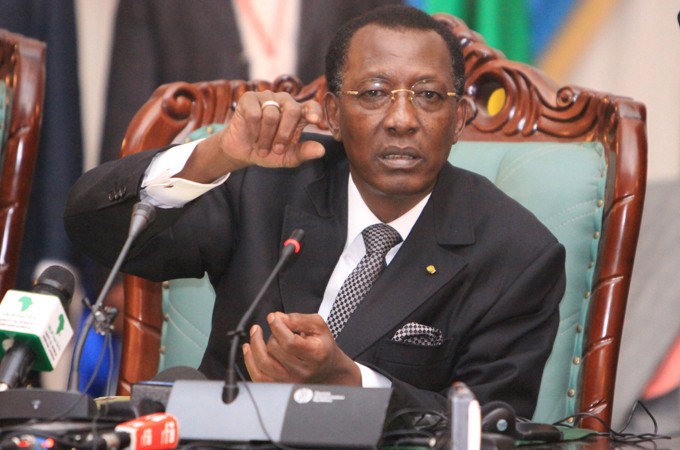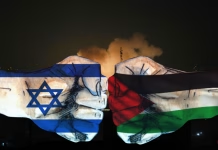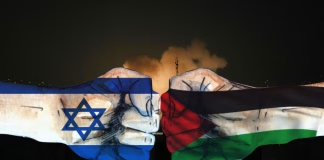[ad_1]
Police in Chad fired tear gas and made several arrests as hundreds protested against President Idriss Deby’s nomination to run for a sixth term in an April election.
In the capital N’Djamena on Saturday, hundreds of protesters set tyres on fire and chanted “No to a sixth term!” and “Leave, Deby!”, a witness told the news agency Reuters.
Police fired tear gas and made several arrests, including of Mahamat Nour Ibedou, a prominent human rights activist. Protests were also held in the cities of Moundou, Doba, Sarh and Abeche, witnesses said.
Al Jazeera’s Nicolas Haque said protests were led by the opposition and human rights activists.
“Their plan was to march to the presidential palace before police fired tear gas [and] arrested some of them,” he said, reporting from Senegal’s capital, Dakar.
Deby, 68 came to power in the 1990 rebellion that overthrew former leader Hissene Habre.
He has been re-elected every five years since then, thanks to constitutional changes approved by a referendum in 2005 to remove limits on presidential terms.
In 2018, a new constitution reinstated term limits but allowed him to stay in power until 2033. His opponents accuse him of trying to create a monarchy.
“The people’s confidence has a sacred value for me,” Deby, who took the title of field marshal last August, said as he accepted the nomination of his Patriotic Salvation Movement (MPS) party.
“Allow me, my brothers and sisters, to tell you that it is after a mature and deep introspection, that I decided to respond favourably to this call of the people,” he said.
‘Lessons learned’
Last Tuesday, 12 opposition party leaders signed a manifesto that set down a joint approach for government, a code of conduct and “the criteria for appointing a single candidate on a transparent and consensual basis”.
Signatories include two prominent opposition figures – Saleh Kebzabo, the runner-up in the 2016 election with about 13 percent of the vote, and Mahamat Ahmat Alabo.
The manifesto says other opposition parties can join, although it does not set a date for when the single candidate will be named.
The alliance’s coordinator, Alladoumngar Tedengarti, said “the lesson has been learned” from previous elections in which Deby was able to cruise past a fragmented opposition.
Other leaders who have yet to join include Laokein Kourayo Medar, who had finished third in 2016, and Succes Masra, whose campaign group, The Transformers, has joined with NGOs to call for protests.
Backed by former colonial power
Despite ruling with an iron fist, Deby largely enjoys the support of the international community which views him as an essential ally in the fight against armed groups in the Sahel region.
Deby has faced strikes and protests in recent years over economic woes caused by low oil prices and armed rebellions in the desert north, where former colonial power France has intervened in support of the government.
“They have intervened twice inside the country to protect President Deby from attempts to overthrow him,” Haque said.
“The former colonial power has the headquarters of the Barkhane operation for the Sahel region based in the capital of Chad,” he added, referring to the French military operation against armed fighters in the Sahel.
Human rights groups have regularly raised objections against the banning of opposition demonstrations, arbitrary arrests and restricted access to social media networks. They have also accused the ruling class of endemic corruption and quashing dissent.
The country ranks 187th out of 189 in the UN’s Human Development Index.
But Deby has drawn on his effective control of state media and institutions to maintain political dominance and won repeated landslide election victories.
Deby has also placed some members of his family in key positions in government, Haque said.
“Meanwhile, the 13 million living in Chad, a country that is rich in oil, live on less than $2 a day,” he said.
[ad_2]
Source link











